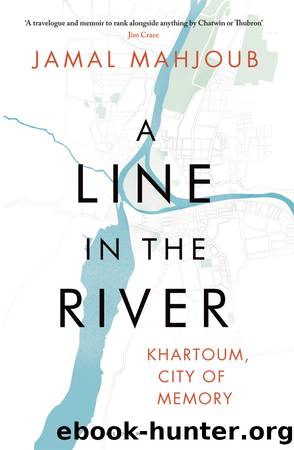A Line in the River by Jamal Mahjoub

Author:Jamal Mahjoub
Language: eng
Format: epub
Publisher: Bloomsbury Publishing
Islam’s arrival in the country, late and by a somewhat eccentric route, via travellers, mystics and Sufi wanderers, came in a very particular form. Syncretism was key; the religion embedded itself through the incorporation of indigenous elements, habits and superstitions that were already established. The mix can still be seen today, in the Sufi tariqas, or schools, in unorthodox traditions like the zar, or the use of leather amulets, or hijabs to shield one from evil. Rather than the imam, or learned scholar, it was the feki who reigned supreme. Part healer, part medicine man, part magician, the feki was more akin to a local saint. He would read to his congregation with the Quran in one hand and a bowl of merissa, the local beer – a traditional source of nutrition – in the other. He would cure his patients by making them drink the ink washed from the wooden tablets upon which sacred verses had been inscribed. He had the power to banish evil spirits, to protect people, even from flying bullets, with his magic amulets containing hair, nails, herbs and Quranic verses (a practice still seen today in Darfur and Kordofan). It is perhaps easy to understand the urge to distance oneself from such backwardness, from superstition, to embrace the conventional orthodoxy that is associated with Wahhabite Islam. If the history of this country has taught us anything, it is that we have turned away, time and again, from alternatives that might have provided us with a solution to our problems.
Turabi’s rather dull, purist drive ignored other, more imaginative attempts to adapt Islam to local needs. The most notable of these came from Mahmoud Mohammed Taha. Considered one of the most original thinkers in the Islamic world, his The Second Message of Islam offers a possibility of a ‘third way’. While not a secularist, Taha envisaged a line that would allow Muslim and non-Muslim to live together as equals, offering a platform on which Northerners could share power with the non-Muslim South in a way that was acceptable and less offensive than a secular, non-religious government.
Taha’s thinking stemmed from an original interpretation of the Quran that is still widely admired, albeit disputed by more orthodox Muslim thinkers. According to this, the Quran can be divided into two parts. The Meccan suras, although chronologically earlier, are usually placed at the end of the book. These are shorter and characteristically elliptical. Often rich in poetic images and mystical allusions, these are the verses that are most open to free interpretation. The later verses were received in Medina, the town that became the cradle of the Muslim community that was to spread around the world. The Medina suras reflect the Prophet’s efforts to outline a prescribed social order. According to Taha, this was intended within the context of the seventh century, and should not be taken as a guide for life today.
Taha uses a quotation from the Prophet Muhammed: ‘Islam started as a stranger, and it shall return as a stranger in the same way … Blessed are the strangers.
Download
This site does not store any files on its server. We only index and link to content provided by other sites. Please contact the content providers to delete copyright contents if any and email us, we'll remove relevant links or contents immediately.
| Actors & Entertainers | Artists, Architects & Photographers |
| Authors | Composers & Musicians |
| Dancers | Movie Directors |
| Television Performers | Theatre |
Cecilia; Or, Memoirs of an Heiress — Volume 3 by Fanny Burney(30934)
Cecilia; Or, Memoirs of an Heiress — Volume 2 by Fanny Burney(30889)
Fanny Burney by Claire Harman(25784)
We're Going to Need More Wine by Gabrielle Union(18074)
Plagued by Fire by Paul Hendrickson(16637)
Cat's cradle by Kurt Vonnegut(13868)
Bombshells: Glamour Girls of a Lifetime by Sullivan Steve(13109)
All the Missing Girls by Megan Miranda(12753)
Leonardo da Vinci by Walter Isaacson(11903)
4 3 2 1: A Novel by Paul Auster(11052)
Adultolescence by Gabbie Hanna(8145)
The remains of the day by Kazuo Ishiguro(7552)
Note to Self by Connor Franta(7024)
Diary of a Player by Brad Paisley(6866)
Giovanni's Room by James Baldwin(5880)
What Does This Button Do? by Bruce Dickinson(5527)
Recovery by Russell Brand(4566)
Born a Crime by Trevor Noah(4511)
The Kite Runner by Khaled Hosseini(4438)
